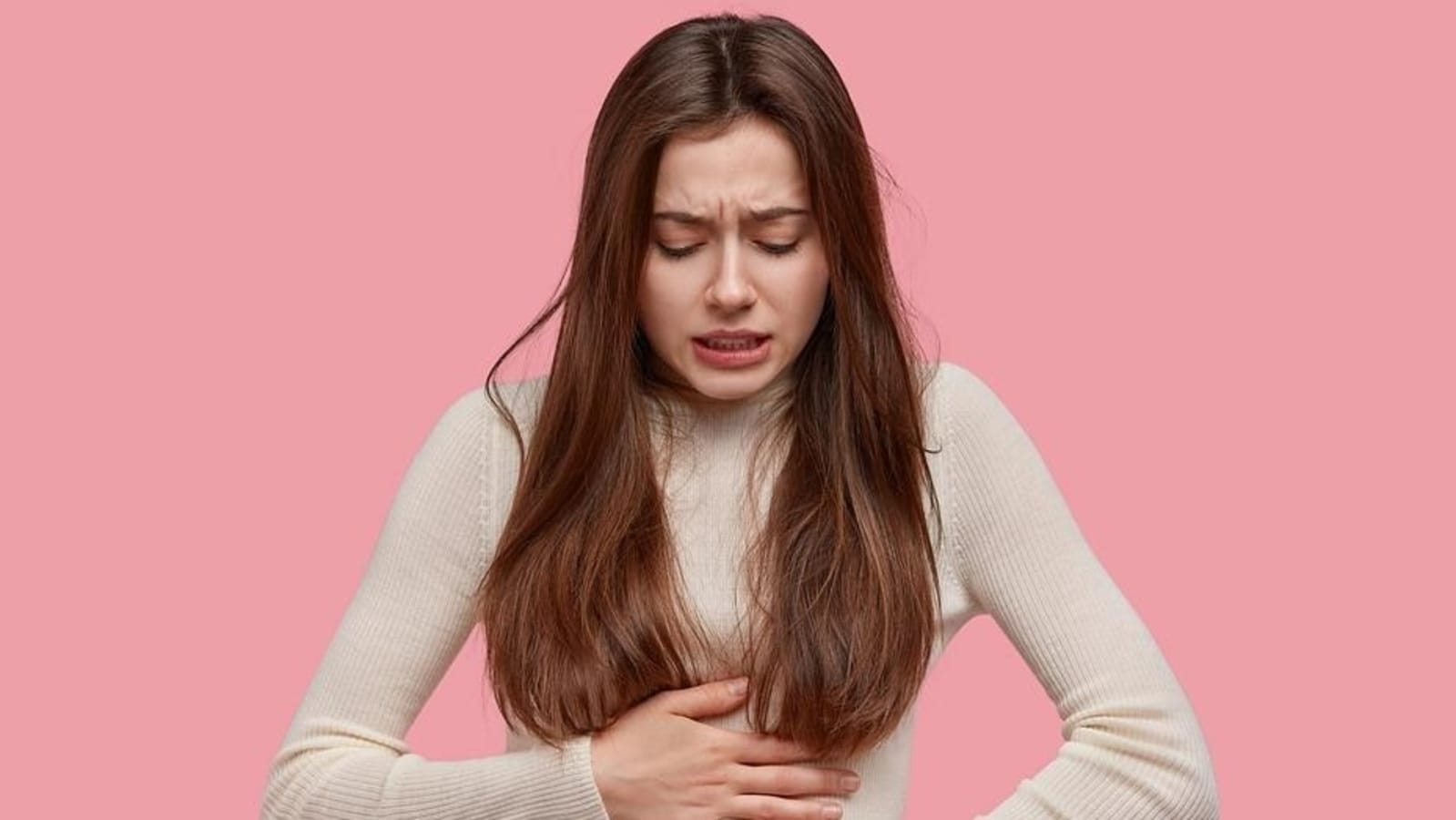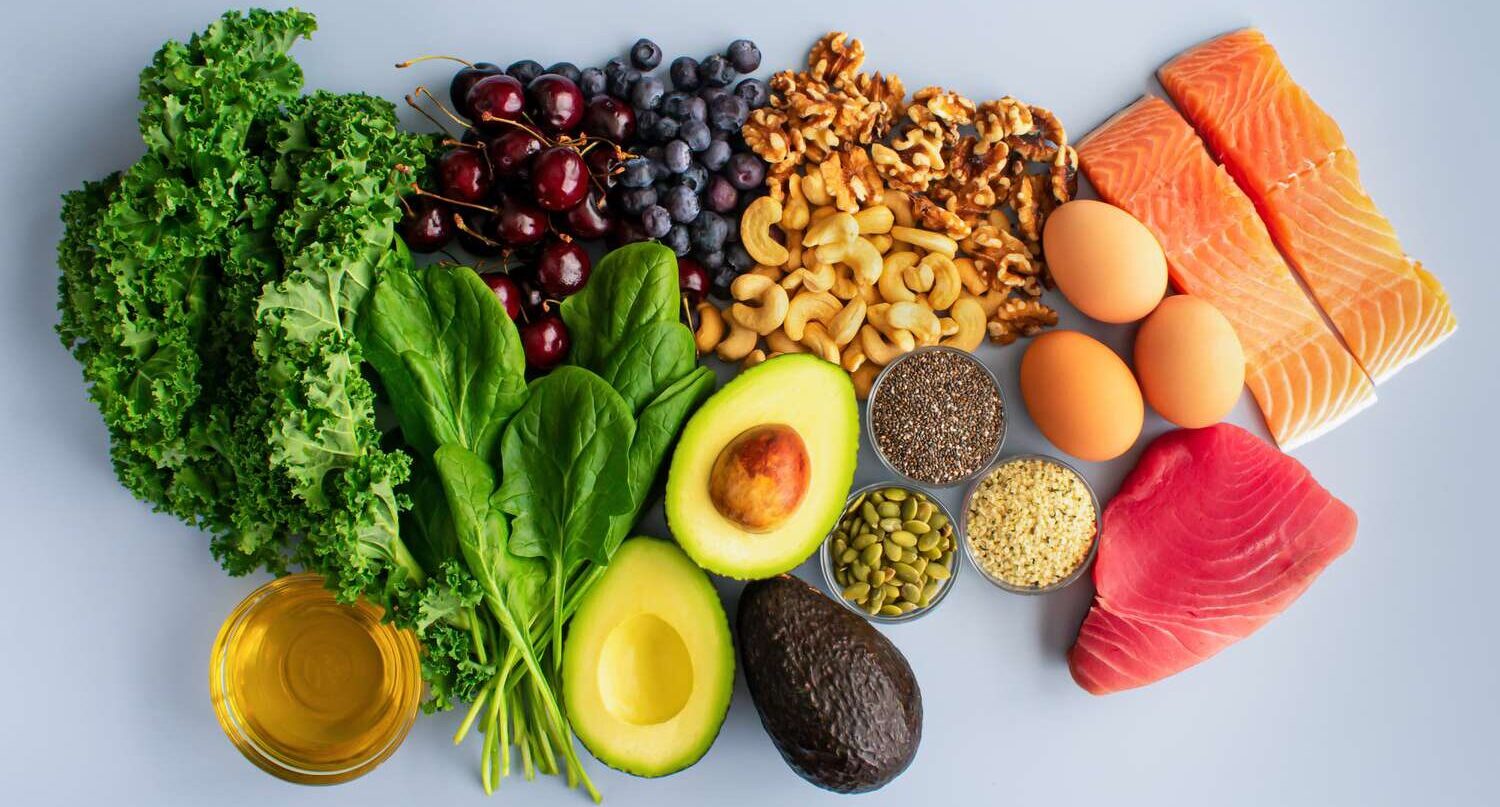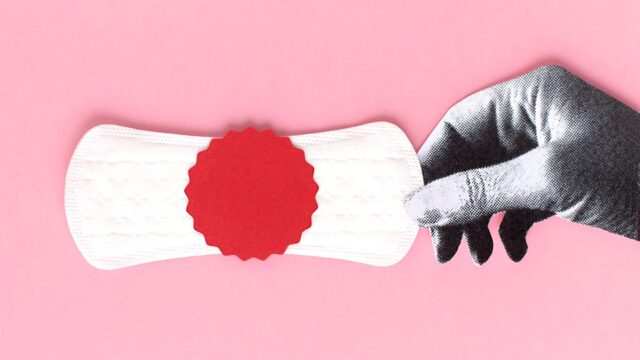Excessive menstruation, also called hypermenorrhea or menorrhagia, is that in large quantities – it exceeds 80ml, which is equivalent to five or six tablespoons of a normal menstrual period, that is, the pad is full of blood in a maximum of one hour, in addition to lasting longer than usual.
Menstruation is considered excessive:
- When the amount of blood requires changing a pad every hour;
- When the woman wakes up in the middle of the night to change the pad;
- When menstrual periods are longer than seven days;
- When there are large blood clots in the menstrual flow;
- When there is pain or cramping in the lower abdomen during menstrual periods.
Causes of Excessive Menstruation

- Use of intrauterine devices;
- Hormonal imbalance of estrogen and progesterone levels;
- Ovarian dysfunction, such as failure to ovulate;
- Elevated levels of prostaglandins, chemicals that help control muscle contractions in the uterus
- Elevated levels of endothelins, chemicals that help blood vessels to dilate
- Endometriosis;
- Pelvic inflammatory disease;
- Uterine fibroids (non-cancerous growths that develop in the muscles of the uterus)
- Abnormal pregnancy (ectopic, miscarriage);
- Infections, tumors or polyps of the cervix or uterine cavity;
- Blood clotting or platelet disorders;
- Liver, kidney or thyroid disease;
- Polycystic ovary syndrome;
- Adrenal disorders and hyperprolactinemia (increased blood levels of the hormone prolactin);
- Cancers of the uterus, ovaries or cervix;
- Chemotherapy;
- Use of medications such as anticoagulants or some non-steroidal anti-inflammatory drugs, as they may interfere
- in blood clotting;
- Obesity.
If you are having an excessive menstruation you should also feel a lot of menstruation pain, and it can get in the way of taking care of the problems you should be really concerned about, to get rid of the menstruation pain, use a pain relief kit, it relieves endometriosis & period pain instantly by stimulating the nerves to block pain signals.
Lifestyle Factors and Their Impact on Menstrual Health

Understanding the connection between lifestyle factors and menstrual health is crucial for managing excessive menstruation.
Hormonal imbalances can result from various lifestyle choices, potentially leading to heavy bleeding. Factors such as stress, lack of exercise, and poor nutrition can disrupt hormonal equilibrium and menstrual cycles, causing undue discomfort.
Stress and Hormones
Stress isn’t just a mental burden; it can significantly impact your physical well-being. Chronic stress triggers the release of stress hormones like cortisol, which can disrupt the delicate balance of reproductive hormones, leading to irregular and heavy periods.
The Role of Diet

A well-balanced diet is pivotal in maintaining optimal menstrual health. A diet rich in iron, vitamins, and minerals supports overall health and helps manage heavy bleeding.
Foods like leafy greens, lean proteins, and whole grains provide the essential nutrients needed for a healthy cycle. Conversely, a diet lacking these nutrients can exacerbate excessive menstruation.
Natural Remedies

For those seeking natural solutions, herbal supplements like chasteberry, ginger, and turmeric offer potential benefits.
Chasteberry is believed to have hormonal-balancing properties, while ginger and turmeric possess anti-inflammatory effects that might help ease menstrual discomfort and regulate flow.
However, it’s essential to consult a healthcare professional before incorporating supplements into your routine.
Embracing Alternative Therapies

Beyond herbal remedies, some women find relief in alternative therapies such as acupuncture and yoga. Acupuncture aims to restore energy balance and promote relaxation, potentially alleviating excessive bleeding and pain.
Yoga, on the other hand, enhances circulation, reduces stress, and may help manage menstrual symptoms by calming the nervous system.
Diagnosis and treatment of excessive menstruation
In addition to the clinical examination, the doctor may request blood tests, Papanicolaou, pelvic ultrasound or biopsy. If a woman has heavy menstruation when she begins to menstruate, or, conversely, when she is approaching menopause, the bleeding may pass spontaneously.
In other cases, treatment is usually done with oral contraceptives, anti-inflammatories, hormones for oral use or with the implantation of an intrauterine device.
If none of these treatments work, surgery may be required. Your doctor may also prescribe iron supplements if your bleeding is so heavy that it causes bleeding.




